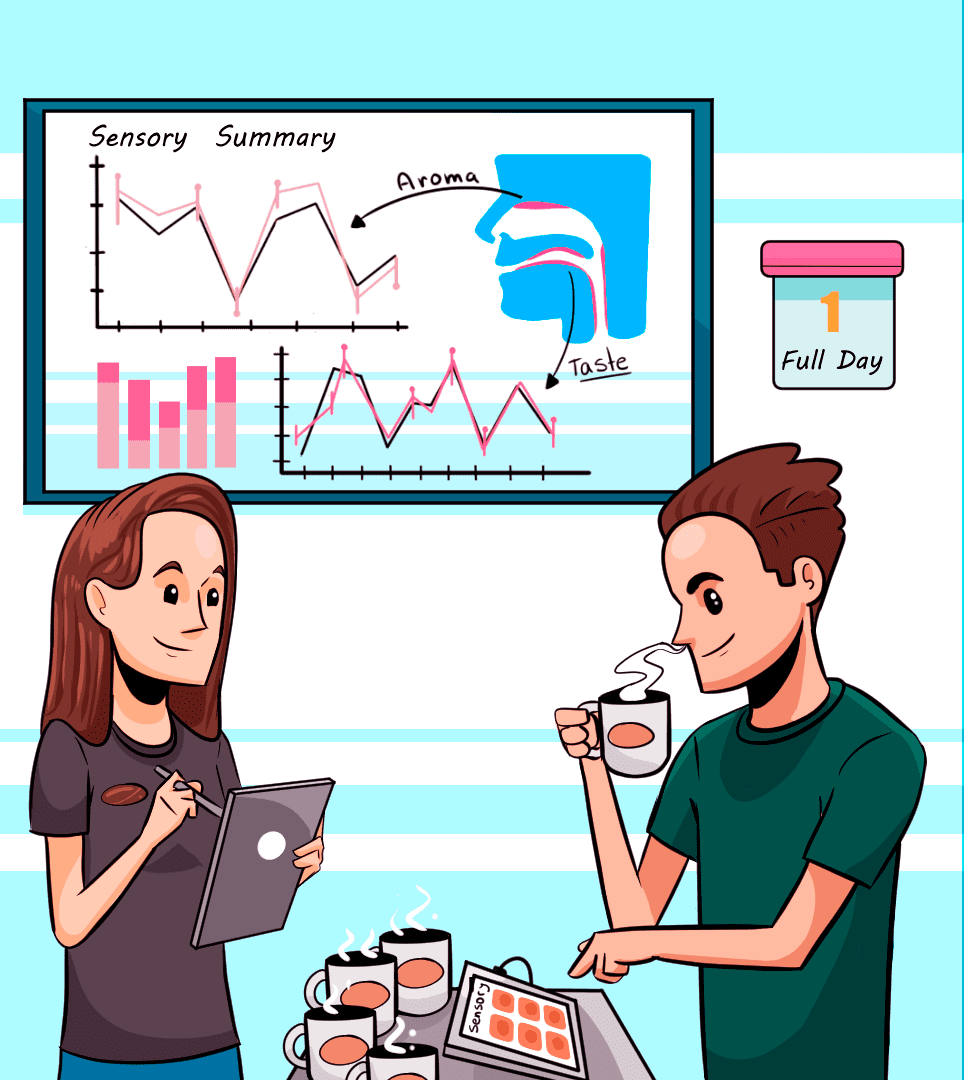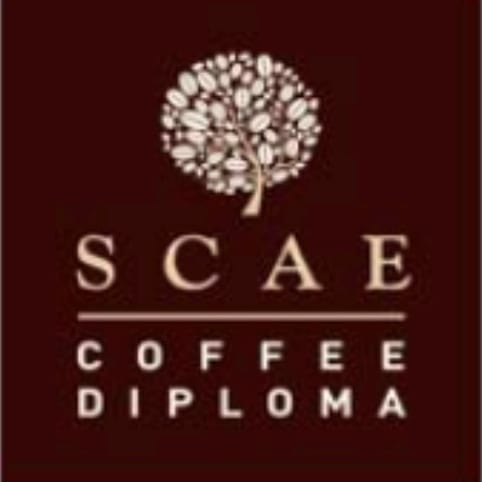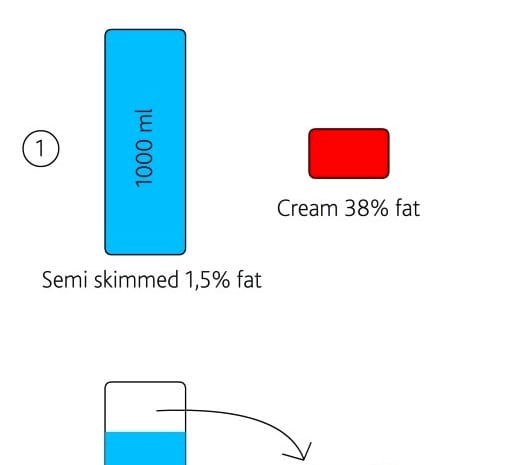Unlocking New Heights in Coffee Sensory Training
In recent years, the field of sensory science has advanced dramatically, offering systematic, data-driven methods to evaluate and improve our ability to perceive coffee flavours. At CoffeeMind, we have harnessed these scientific advances into custom statistical software that integrates the latest genres of sensory testing—from discriminative to descriptive and preference methods. Now, by partnering with IKAWA, it’s possible to deliver live, remote sensory skills assessments to any professional with an IKAWA roaster, everywhere in the world.
The problems with the most widespread cupping forms
The Specialty Coffee Association’s (SCA) 2004 cupping form, long used by Q Graders under the Coffee Quality Institute (CQI), was originally created to standardize coffee evaluation. While it introduced consistency, it came at the cost of genuine sensory insight. Complex flavor experiences were reduced to numerical scores, which are often meaningless without proper context or calibration—something that is only locally and temporarily valid, as human perception tends to shift within days. As such, the form encouraged the illusion of precision – and even worse: the idea of a universal reliable quality scale! – while neglecting methodological rigor and the dynamic nature of sensory evaluation.
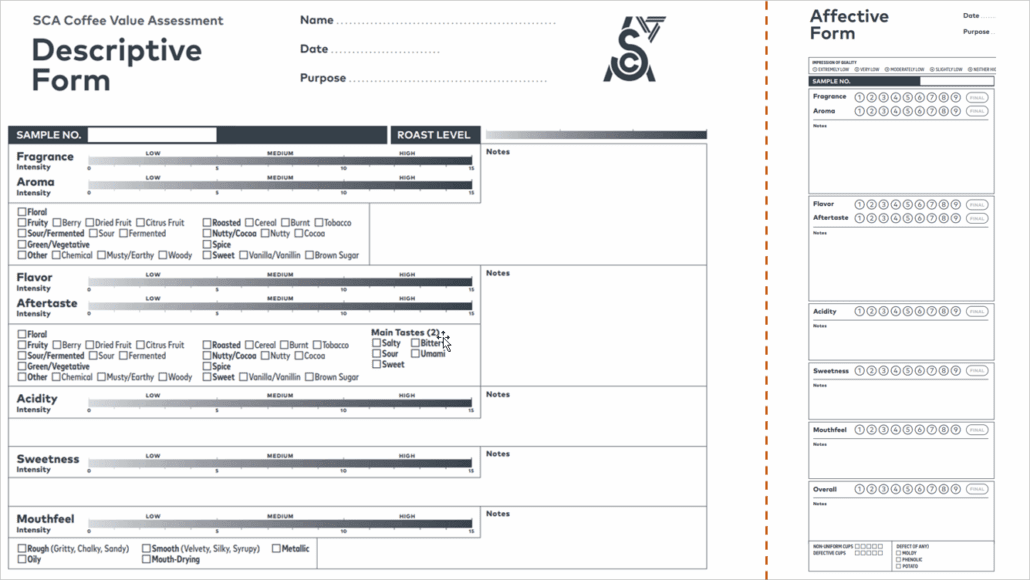
In response, the SCA developed the Coffee Value Assessment (CVA) system in an attempt to address some of these issues—most notably, by moving away from the problematic notion of a universal definition of quality. The CVA system does attempt to distinguish between descriptive sensory analysis and hedonic (affective) evaluations, which is a step in the right direction. However, it fails to deliver a simple, statistically usable protocol. Instead, it introduces unnecessary complexity that does not support scientific inference. Good sensory data must be based on simplicity—evaluating only the relevant parameters for the samples at hand—and replication, which is essential for statistical validity.
Furthermore, while the affective section of the CVA appears consumer-oriented, it is not based on actual consumer input. Rather, it captures the professional’s assumption about what different consumer segments might prefer. Anyone experienced in conducting consumer research knows how unreliable such assumptions are: in many cases, consumers say they like one thing but end up preferring something entirely different in practice. These mismatches demonstrate just how flawed it is to rely on professional intuition in place of real consumer data.
In summary, although the CVA attempts to modernize coffee evaluation by separating descriptive and hedonic elements, it ends up overcomplicating the process and generating poor-quality data. High-quality sensory data must be minimal (only what’s relevant), replicable (to test consistency), and structured in a way that allows for proper statistical analysis—none of which is adequately addressed by the CVA system.
What CoffeeMind has done since the SCA CVA critical presentation at WOC Copenhagen 2024
Contrasting these methodologies, CoffeeMind offers a fresh perspective rooted in the foundational principles of sensory science. Since World of Coffee 2024 CoffeeMind has developed sensory software emphasizing active engagement and personal skill development over rigid form-filling. By focusing on experiential learning, CoffeeMind seeks to cultivate a more profound and individualized understanding of coffee tasting.
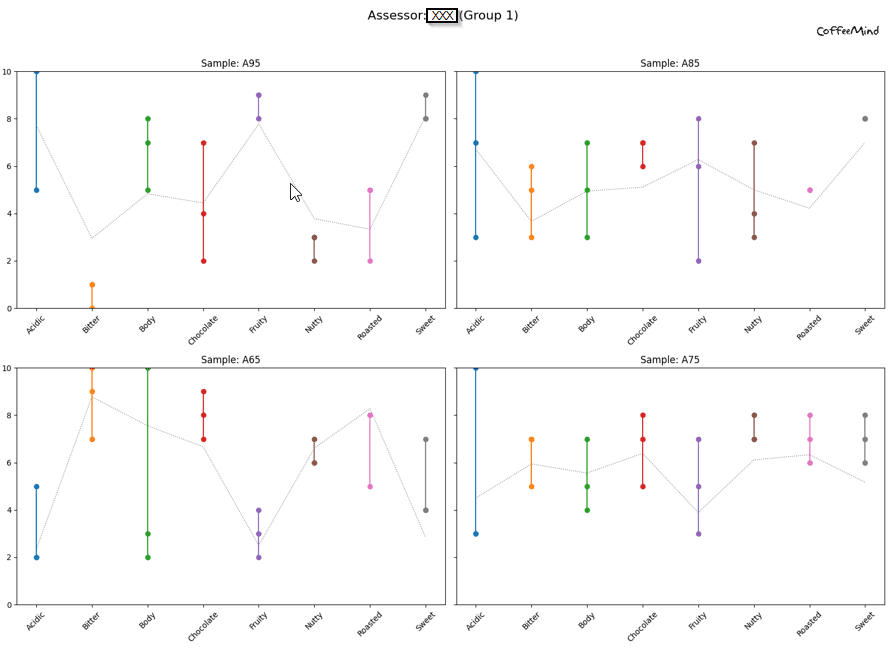
This approach aligns with the pioneering work of Rose Marie Pangborn, a trailblazer in sensory science during the 1970s. As a professor at the University of California, Davis, Pangborn emphasized the importance of human perception in food evaluation. Her research championed the idea that sensory analysis should prioritize genuine human experience over mechanistic measurement.
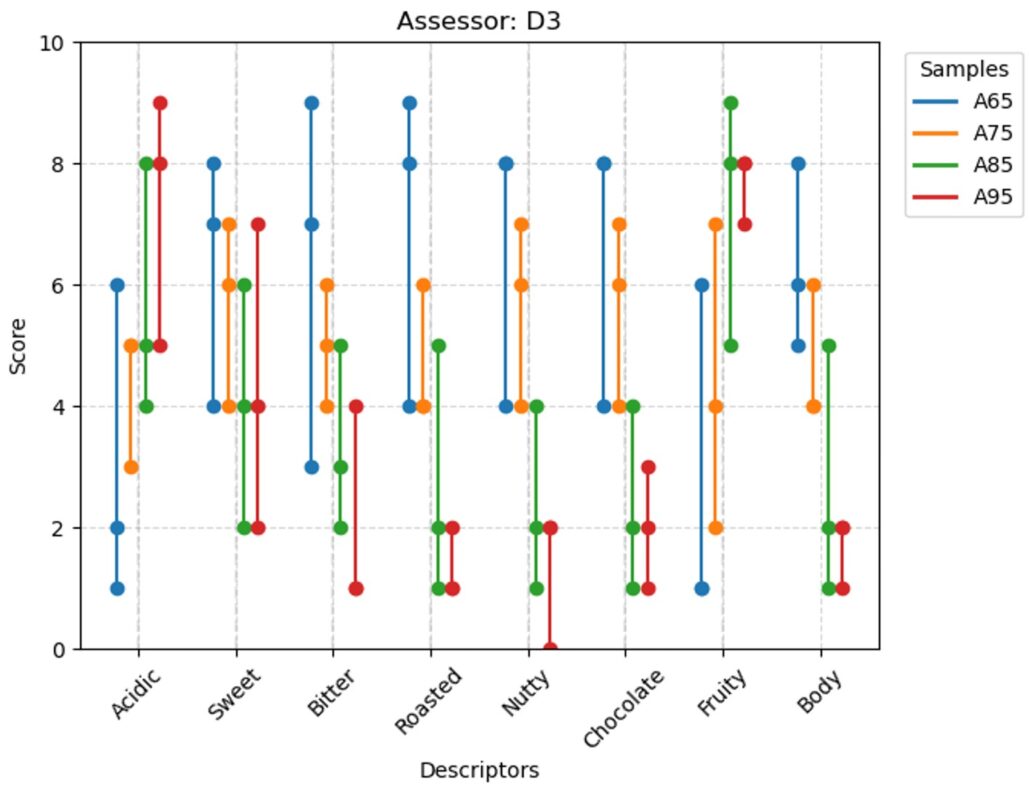
By integrating Pangborn’s principles, CoffeeMind’s methodology encourages tasters to develop their sensory skills through practice and reflection, rather than relying solely on standardized forms. This human-centric and therefore skills central (rather than paper filling form centric) approach fosters a deeper connection to the coffee tasting process, promoting both personal growth and a richer appreciation of coffee’s complexities.
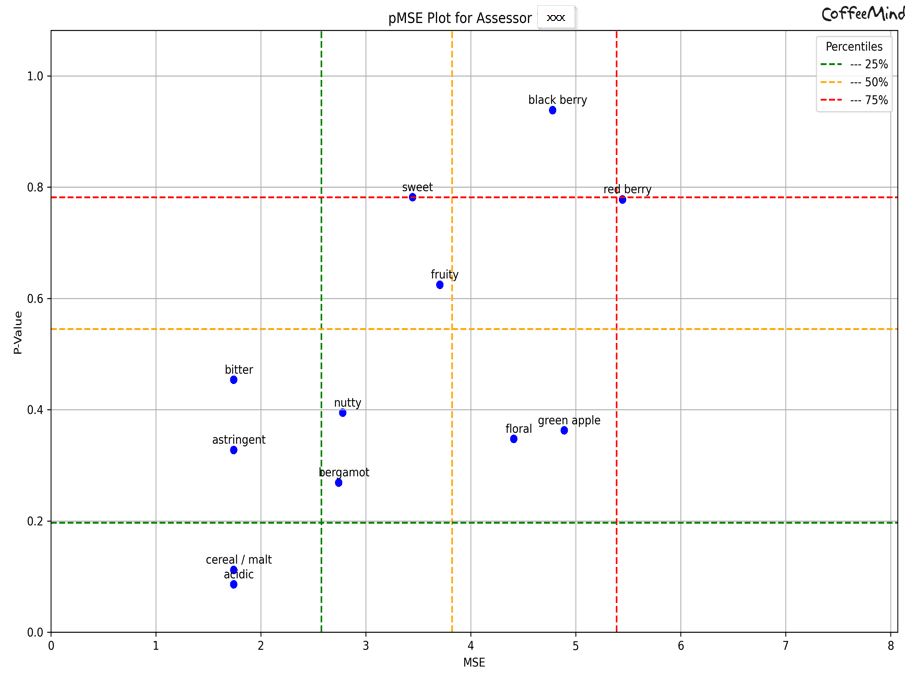
In summary, while the SCA’s cupping forms have played a significant role in standardizing coffee evaluation, there’s a growing recognition of the need for methods that prioritize personal engagement and sensory development. CoffeeMind’s approach, inspired by the foundational work of Rose Marie Pangborn, offers a pathway toward more meaningful and insightful coffee tasting experiences.
What Makes Modern Sensory Science Different?
Sensory science provides a structured approach to tasting, built on three foundational test types:
- Discriminative Tests: Evaluate your ability to detect subtle differences between samples. Techniques like triangle or duo–trio tests isolate specific flavour changes.
- Descriptive Tests: Use trained panels to quantify intensity of aroma and taste attributes. Replicate-based scoring, analyzed with uni- and multivariate statistics, reveals precision and consistency per descriptor.
- Preference Tests: Measure real consumer responses, ensuring that improvements align with what drinkers actually enjoy.
Together, these methods eliminate guesswork, revealing both the strengths you can build on and the gaps you need to address.
A Decade of Research, Now in Your Hands
Our software stems from over ten years of sensory learning research, including doctoral work in sensory pedagogy. It functions as a “sensory hearing test” for your palate—administering tailored discriminative and descriptive challenges, collecting replicate scores, and applying logistic regression and advanced multivariate analyses. The result is individualized feedback: precise detection thresholds, descriptor scoring precision, and clear insights into your sensory profile.
Running Remote Courses with IKAWA
Traditional sensory training often requires travel to specialized labs or workshops. With our IKAWA partnership, the process is entirely virtual and live:
- Precision Roast Profiles: CoffeeMind provides customized IKAWA roast profiles so you can use your own green coffee to create consistent samples for the sensory assessment class.
- Live Software Guidance: During the remote session, our software instructs a colleague or friend to roast, prepare, and serve samples following exact protocols.
- Integrated Data Capture: Student evaluation data is captured directly in our software for immediate analysis and reporting at a scope and quality ready for scientific publication.
No flights, no hotels—just your IKAWA, a local assistant, and a global expert team guiding you.
Key Benefits of Our Scientific Approach
- Precision Feedback: Discriminative tests aligned with Cup Tasters standards, analyzed via logistic regression to quantify flavour sensitivity thresholds.
- Descriptor Mastery: Descriptive analysis with replicate scoring and multivariate statistics ensures you understand your accuracy and consistency per attribute.
- Panel Calibration: Real-time outlier detection and coherence analysis give business owners actionable insights into team performance.
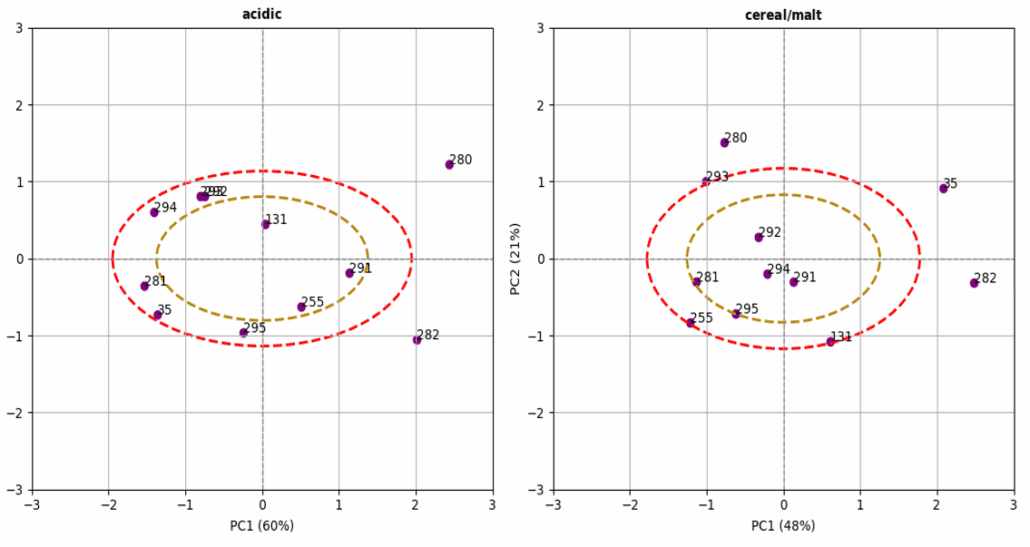
From Data to Confidence
By participating in CoffeeMind’s Sensory Performance for Coffee Roasters you gain:
- A clear roadmap for targeted skill development.
- Confidence grounded in statistically valid results.
- Leadership in sensory evaluation, elevating your roasting and product decisions.
Join the Sensory Science Revolution
CoffeeMind and IKAWA have redefined what’s possible in remote sensory training. Whether you’re an individual roaster seeking clarity or a company building a calibrated tasting panel, our platform delivers rigorous, engaging, and accessible courses. Embrace data-driven sensory mastery—wherever you are in the world.
